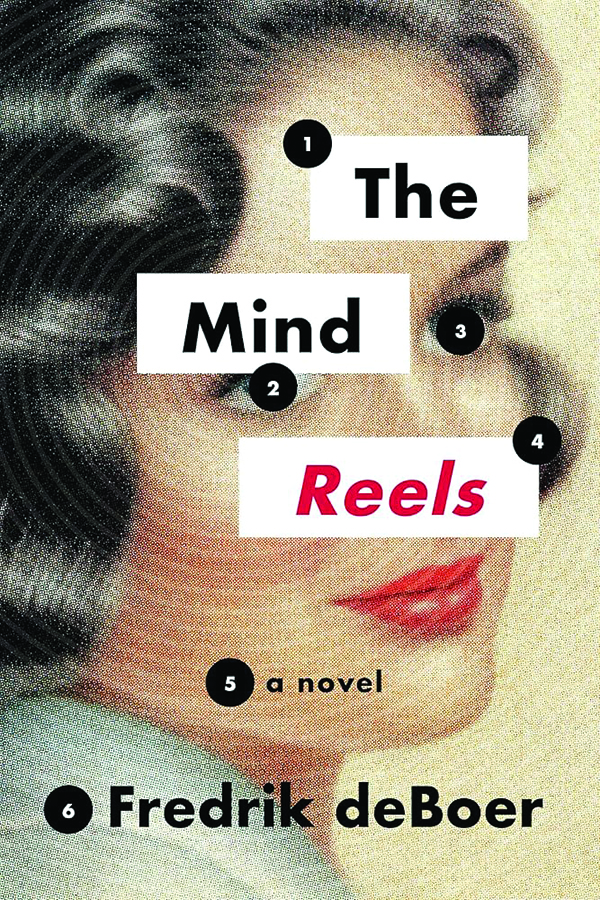


Before it was swamped by weird and lurid images, bizarre and titillating video clips, and offensive or obscurantist memes, the internet produced what may be the final flowering of literary culture. Emails, forum threads, blogs, and even tweets and status updates were mostly text. More writing was produced in the early years of the 21st century than at any other point in human history.
Recommended Stories
- James Dobson, 1936-2025
- The stolen base is back — and so is baseball
- 'The Rainmaker' explores what it takes to make John Grisham bad
So what do we have to show for it? There are certain readily identifiable styles of writing popularized online — the snark of Gawker and its many imitators, the leaden prose of the wonks, the vicious cruelty of the forum trolls — but few memorable writers. If the output of the early internet era is remembered at all, it will be for repetitive stock phrases and annoying rhetorical tics.
Fortunately, there are exceptions to every rule. Freddie DeBoer, the prolific essayist, Substacker, and unapologetic socialist, is, if nothing else, a very memorable writer. As commentary has become the preserve of strivers and resume polishers, DeBoer, a self-described “perennial f***up,” has carved out his own niche. He savages social justice pieties from the Left. He disdains relentlessly upbeat cultural criticism. He has several long-running and seemingly one-sided feuds with various writers and magazines. He also experienced a very public mental breakdown that ended with him being involuntarily hospitalized. Gory details are readily accessible to anyone with a working internet connection.

The Mind Reels, DeBoer’s latest book, is not a polemic or a diagnosis of what’s wrong with the world. Instead, it’s a frightening and sometimes moving novel about a young woman’s descent into madness. This is emphatically not a book about wheedling a note out of your doctor to get extra time on a standardized test. Alice, the novel’s protagonist, really is going crazy. As her condition worsens, she receives the brush-off treatment from friends, university administrators, and doctors. For much of the book, her distress is treated as a minor inconvenience to be managed with the right mix of prescription drugs and sympathetic “uh-huhs.”
When Alice moves from her nondescript Oklahoma hometown to the campus of Big State U, she encounters a series of minor characters whose descriptions recall DeBoer’s online writing, which can be cutting and dismissive when he finds someone to disagree with. Some authors can conjure up fully realized characters with a few carefully chosen lines. DeBoer’s campus characters are introduced like writers he’s about to eviscerate in a blog post. A boy at a Halloween party smokes a cigarette “like someone who wanted other people to see that he was smoking a cigarette.” Cool young professors flirt with passing undergraduates “right up to the line, never stepping over it under their own power but always ready to be pulled across by the lightest touch.” A doctor who misdiagnoses Alice has “very serious glasses … on a very serious nose that tied together a very serious face.” DeBoer made his reputation as a take-no-prisoners online pugilist, but a style honed for internet takedowns doesn’t always translate to fiction.
Alice, the book’s leading woman, is also a bit of a cipher. She is introduced as an unremarkable girl who grew up in a generic suburb and enrolls at the University of Oklahoma for lack of any better ideas. It is refreshing to meet a protagonist who isn’t secretly a genius or a brilliant artist, but such characters can also be difficult to write. At one point, a rapidly deteriorating Alice sees a student counseling pamphlet “crawling with Straussian material, symbols laden with meanings she knew she could decode if she could only find the thread.” I’m not sure how many University of Oklahoma undergraduates would think of Leo Strauss in the middle of a mental breakdown.
Funnily enough, The Mind Reels picks up steam as Alice’s mind degenerates. The book’s descriptions of interminable therapy sessions and sterile mental health wards are more compelling and richly observed than anything from campus. Certain details about Alice’s slow descent into madness are also memorable: a derivative fantasy story she writes about meeting a bison king, matter-of-fact descriptions of her out-of-control bodily functions, the drugs she ingests, and the toll they take on her wearying body.
Serious mental illness is frightening because it is fundamentally inscrutable to outsiders. Normal, well-adjusted people can’t know what it’s like to piss yourself because you can’t summon the energy to go to the bathroom or to construct paranoid fantasies about your roommate rearranging your toiletries. At times, I wanted to scream at Alice for her obviously self-destructive behavior, but Alice can’t course-correct because her actions are the product of a disordered mind, and not an indulgent upbringing or a bad friend group. The reader is made to feel like Alice’s poor parents or loyal best friend, sympathetic but helpless bystanders to a force of nature that can’t be controlled or even understood.
A rarely discussed aspect of mental illness is the price treatment exacts from patients. In Alice’s case, there is no prospect of a permanent cure. Periods of mental stability are bought with a drug regimen that induces weight gain, deadened emotional responses, and an all-encompassing mental fog. DeBoer, who has written movingly about the transformation medication wrought on his own physique, clearly drew on those experiences to describe Alice’s plight.
I am inclined to roll my eyes at our current mental health discourse, which treats psychological illness as a charming personality quirk or shorthand for problems most of us deal with from time to time, such as trouble focusing or difficulties with personal relationships. The Mind Reels is a corrective to such assumptions. Alice’s decline is not sexy or romantic — it’s like watching a car crash unfold in slow motion.
THE END OF COSMOPOLITAN EUROPE
Meanwhile, a medical establishment equipped with ample resources and all the right cliches seems woefully unprepared for someone with an honest-to-God psychological disorder. The university administrators, nurses, and doctors Alice encounters early in the book are inured to tales of mental breakdown because they’ve dealt with so many false positives. Later, Alice struggles to find a therapist who specializes in patients suffering from psychotic disorders. Better to discuss childhood trauma with perfectly well-adjusted clients willing to pay for the privilege of therapy.
The moral of the story about the boy who cried wolf is not that the wolf doesn’t exist. Mercifully, severe mental disorders are confined to a relatively small number of people who deserve our sympathy and specialized medical attention. The tragedy of The Mind Reels is that even the right treatment condemns people like Alice to a regime of mind-numbing drugs and soporific therapy sessions. But what’s the alternative? The only thing worse than Alice on meds is Alice off of them.
Will Collins is a lecturer at Eotvos Lorand University in Budapest, Hungary.
